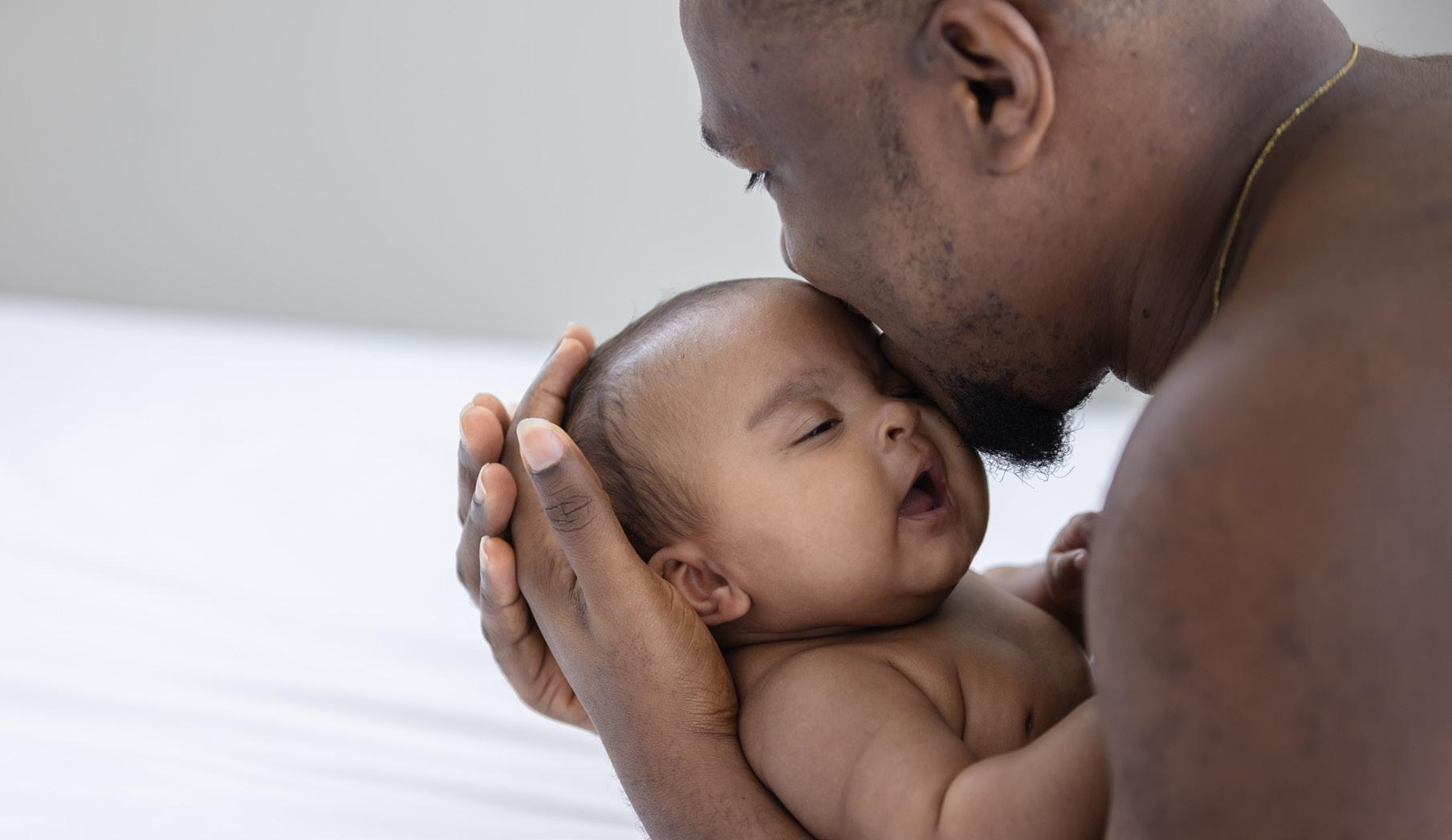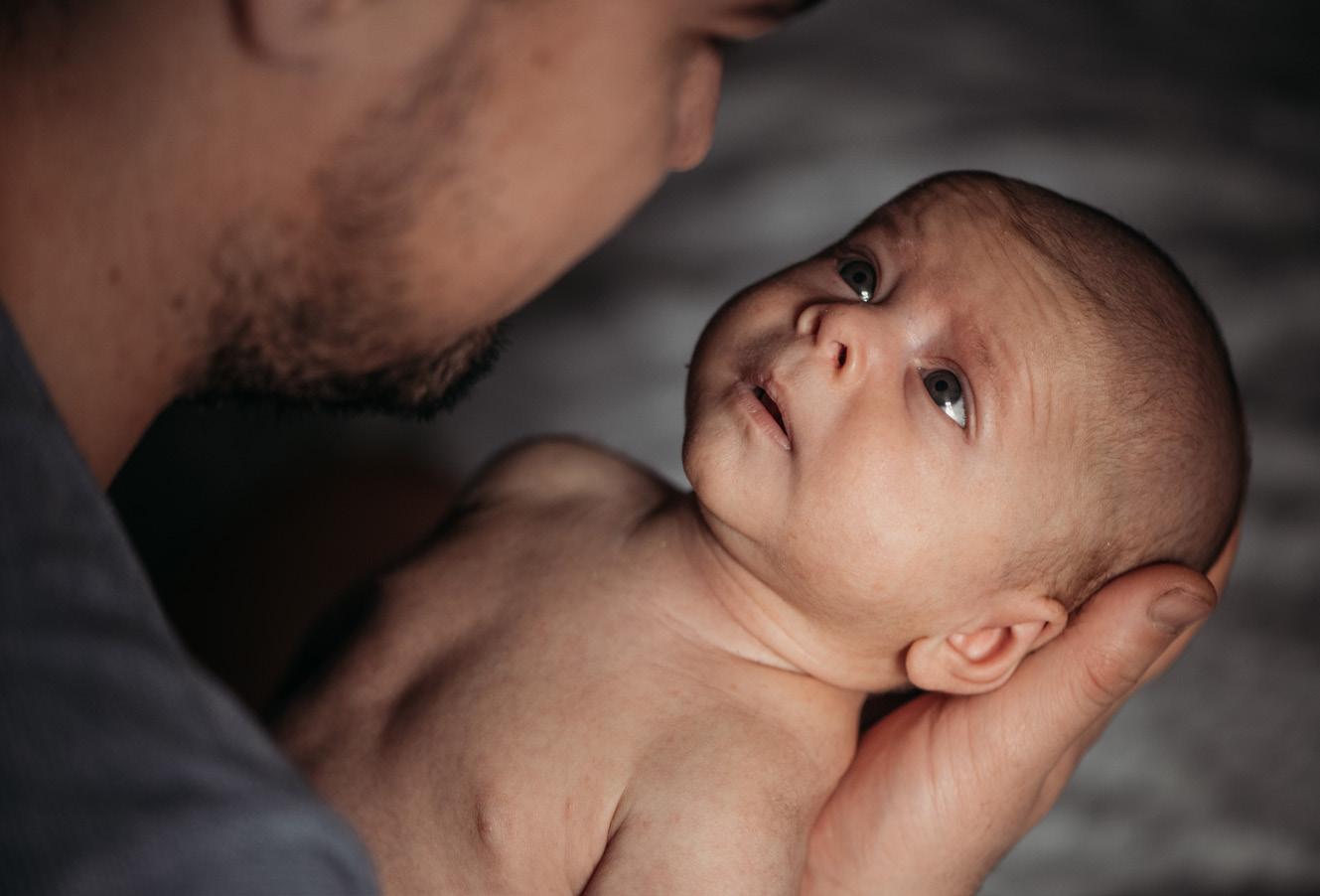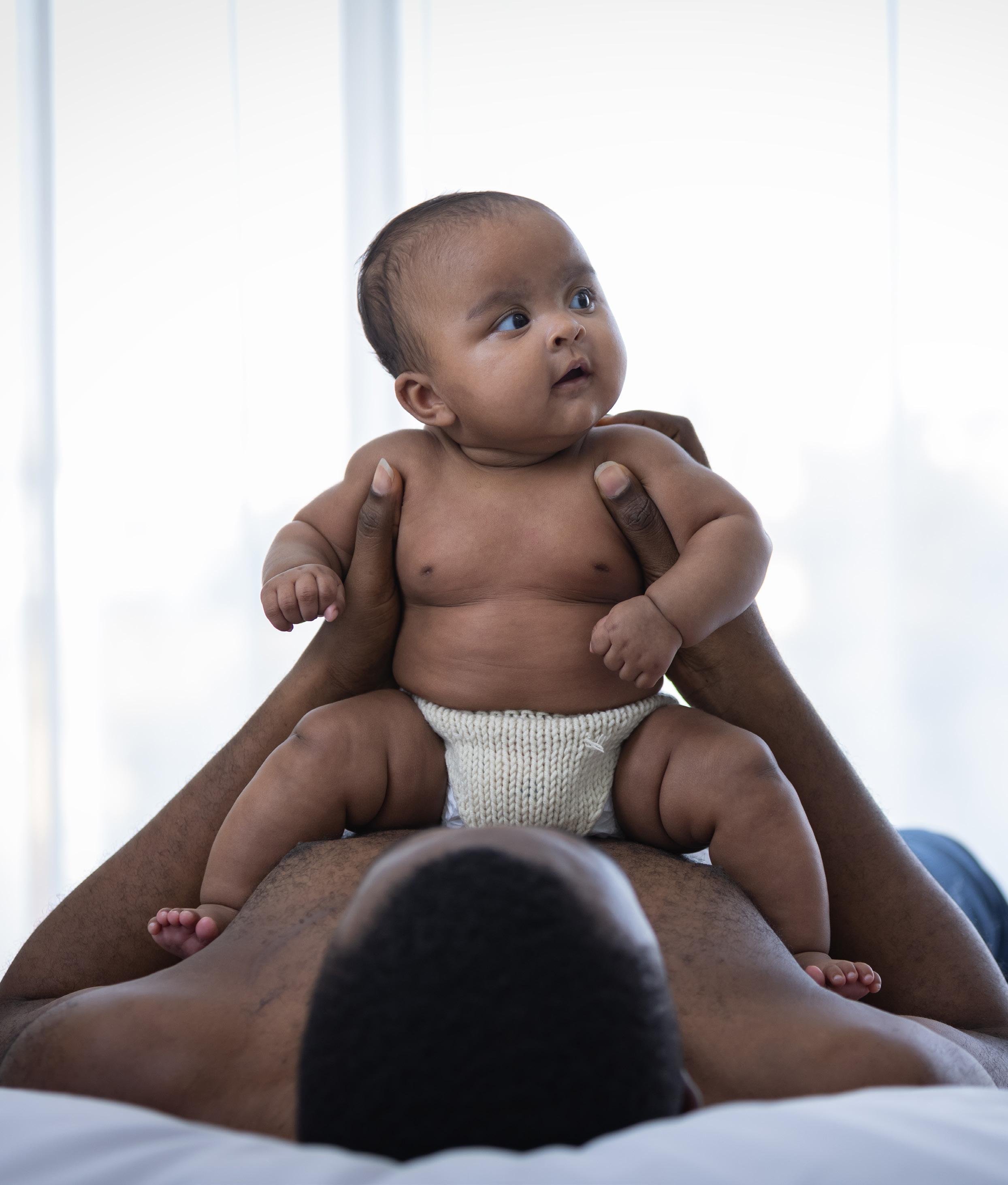
4 minute read
& Newborn Care
intments, sleeping, waking, crying, feeding, spit-up, bathing, laundry, soothing, diaper changing, etc.
And that’s just the baby!
Advertisement
There’s a reason this recovery period is often referred to as “The 4th Trimester”. As beautiful and miraculous as pregnancy and birth are, they take an enormous toll as well.
Your partner is exhausted to a degree they’ve likely never experienced before. Their body has been in a perpetually fluxuating state of TREMENDOUS change for nearly a year now.
Regardless of the details of how the birth unfolded and whether your partner had a vaginal birth or cesaraen section, the healing and recovery process will be both necessary and significant.
As if the physical demands weren’t enough already, your partner is also adapting to major postpartum hormonal shifts. They are grieving the end of the dynamic experience of pregnancy. They‘re making peace with a body that can sometimes look and feel unreconizable. They‘re potentially feeling the obligation to communicate with and sometimes host friends and family who are eager to connect and to meet Baby… AND ALSO feeding and nurturing your newborn and navigating the psychological and emotional realities of becoming a parent. All of this is going down while you‘re both feeling over-extended, excited, and perpetually sleep deprived.

So!! For all these reasons and more, this is the time for you to really step up in your support role. To whatever degree possible, you can take on many of the newborn care tasks and most of the other household management tasks as well.

The good news is that, so long as you’re structured and prepared, there’s no doubt that you’ll be ready and able to tackle all of these and take it all in stride.
But again, for now, let’s bring it back to broad strokes. However miraculous pregnancy and birth are, they’re also incredibly taxing on the body, so for at least the next 6 weeks after your baby’s born, your priorities are to make sure that your baby and your partner are both getting all the rest and nourishment they need to recover.
When it comes to the types of support you can provide, the #1 thing you can do is pretty simple:
Do ALL the things.
(or at least all those that your partner isn’t needed to do).
Change ALL the diapers. Cook ALL the meals. Do ALL the chores. Shop for ALL the groceries. If you’re bottle-feeding, take frequent shifts so your partner can take a shower or a bath or catch up on some much-needed and well-deserved sleep.
But what can you do for your baby?
We can certainly do a REALLY deep dive into all the ways you can help to take care of the physical well-being of your newborn, but for now – continuing our focus on the big picture – nothing could be more important than…
BONDING with your child.
After all, that’s what all of this has been about, right?
To be clear, bonding with your child can begin long before they are born. Even in utero, if you speak and/or sing to them regularly, they will undoubtedly recognize (and be soothed by) your voice immediately when they meet you on the outside.

With that said, I want to be very clear about the fact that some dads find that bonding doesn’t happen right away. Sometimes it takes a few weeks or months or more, and of course, that’s okay!
It doesn’t in any way diminish the time that you spend together or the love you have for your child.
Let’s take a closer look, though.
We often think of bonding as something passive that just happens when it happens.
And to a certain extent, that’s true. You can’t necessarily force a bond to appear.
But at the same time, we can take a much more active approach, emphasizing interactions that can significantly increase the likelihood of these bonds being created.
So what does that look like?
Presence.
That’s it. That’s all that’s required.
To clarify, though… just sharing space together is probably not going to do the trick!
“
In real time, you and your partner are learning how to be parents. Simultaneously, your baby is learning how to be a human being who moves through the world. You’re all learning at the exact same time.“

By all means, hold Baby on your lap while you watch the game. Scroll on your phone all you want while they nap in your arms.
But being present with your child is an entirely different notion altogether. Get down on the ground with them. Put them on your chest. Lock eyes and get curious about what it is they’re looking at or thinking about. Mimic the noises they’re making. Wherever you are with them, pretend you’re an announcer giving the play-by-play of whatever it is that you’re doing and seeing.
Act silly with them. Make strange sounds and use different playful voices.
This kind of engagement is HUGE, not only because of the impact on their development that comes with exposure to words and language, but because - if you’re not typically a silly, let-loose kind of a person, it’s incredible PRACTICE FOR YOU.
Over time, this silliness and playfulness will become second-nature to you, making the bond and the connection between you stronger, faster, and deeper.
Remember those questions we talked about at the beginning? The ones about how you want to be remembered when you’re gone? About the quality of the relationship you share with your kids?
It all starts here.
In real time, you and your partner are learning how to be parents. Simultaneously, your baby is learning how to be a human being who moves through the world. You’re all learning at the exact same time.
Lean into it. Embrace it. Love it. Love ALL of it.
The easy and the challenging. The natural and the uncomfortable. The beautiful and the messy.
This is what it’s all about.
One step at a time, in real time, you’re defining and refining your own personal concept of fatherhood and the dad that you want to be for your child.
Be patient with yourself. Be rigorous and intentional.









